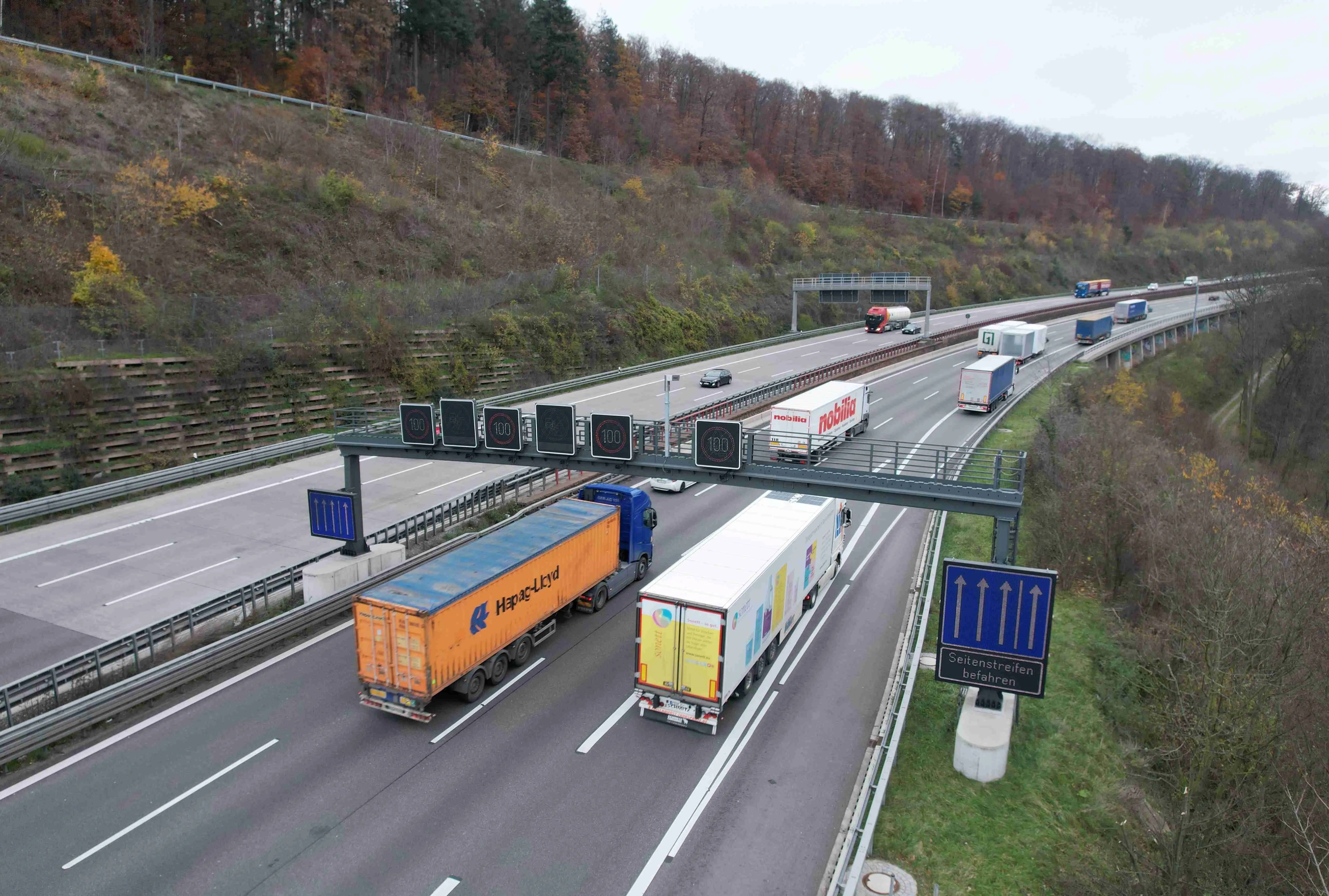
Swarco has installed a temporary hard shoulder clearance, or live-lane running system, on the A8 motorway in southwest Germany for the Die Autobahn highways agency.
The A8 is an important central east-west link in the European transport network. The section between Karlsruhe motorway interchange and Karlsbad junction features a winding route and gradients of around 7.5% and is highly congested with about 110,000 vehicles per day. Traffic flow is often blocked in this section due to slow-moving trucks and there are frequently overtaking manoeuvres and lane changes taking place.
Swarco's system spans 2.8km along the motorway between Karlsruhe and Karlsbad. It consists of four display cross-sections with LED variable message signs (VMS), eight pole installations for VMS or camera technology as well as 12 route stations. In addition to the outdoor equipment, Swarco also provides central control software.
The camera technology is from Fuunkwerke Video Systeme while the operation of all functions is managed by the Autobahn traffic control centre in Stuttgart. Before the hard shoulder lane becomes a live lane, it must be checked by the traffic control centre to ensure that no obstacles are blocking the lane.
Swarco says that the system offers a climate- and resource-friendly possibility for using existing infrastructure more effectively without the need for costly and more permanent expansion of that infrastructure. In fact, notes Swarco, the capacity of the infrastructure can increase up to 30% with such a system.
The first live-lane running took place early last December.
The introduction of live-lane usage on hard shoulders has been controversial among highway safety experts and the public. Early last year, the UK stopped implementation of its so-called smart motorway schemes until safety data has been collected over five years, according to the Department for Transport.
The department said that during this time it will invest €1.08 billion (£900 million) to improve safety on existing All-lane running motorways. The roll-out of new smart motorways will be paused for schemes introduced before 2020. After this five-year period, the government will assess the data and make an informed decision on next steps, it said.
Although available data shows smart motorways are comparatively the safest roads in the country in terms of fatality rates, the government says it "will go further by ensuring current smart motorways without a permanent hard shoulder are equipped with best-in-class technology and resources to make them as safe as possible”.








